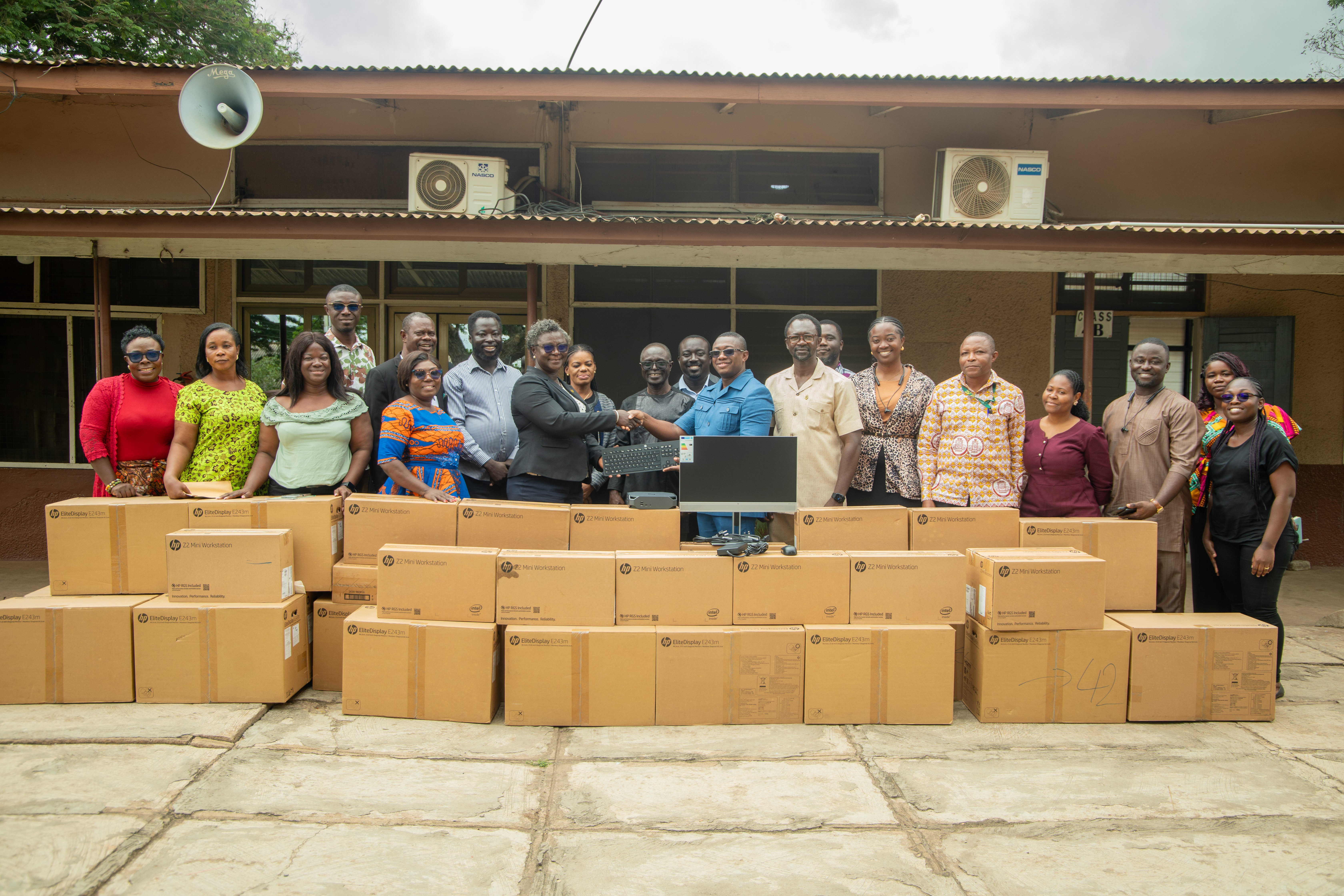Search our website
IDL Kumasi staff undertakes health education on cervical and breast cancer
- Published: 06 May 2022
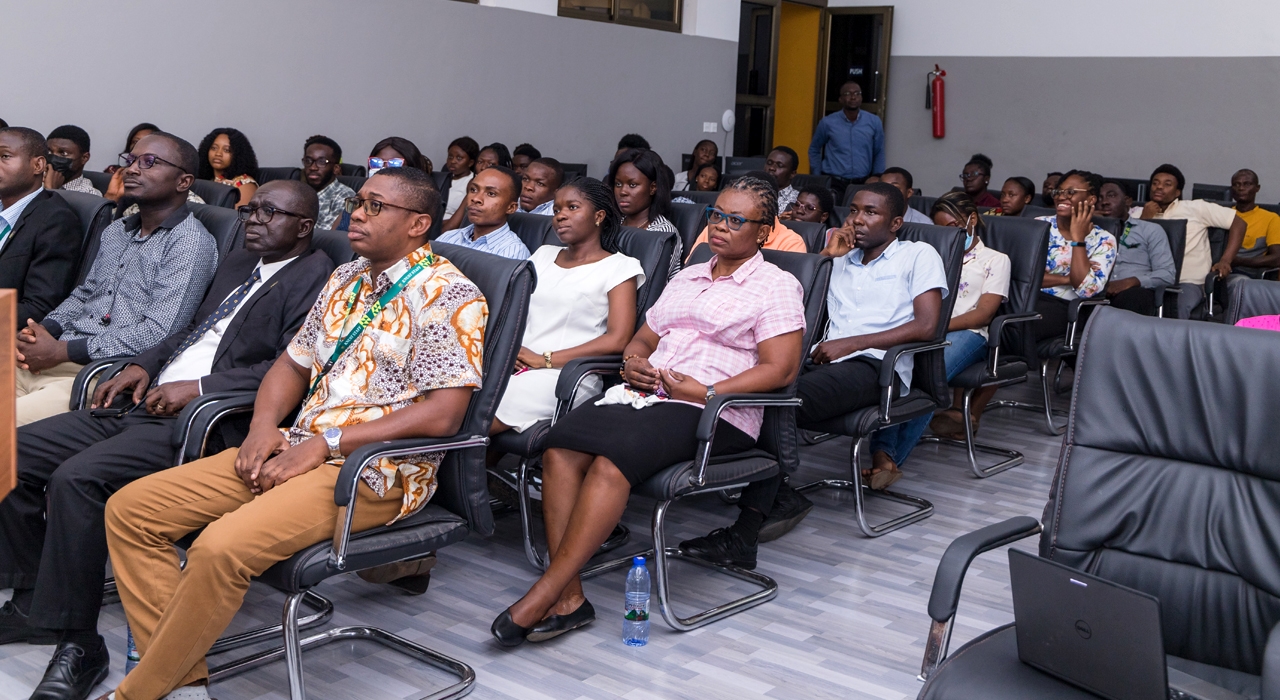
The Preventive Health Unit of the University Hospital, Kwame Nkrumah University of Science and Technology (KNUST), Kumasi in collaboration with the Management of the Institute of Distance Learning (IDL) organised a day’s health education programme on cervical and breast cancer. The purpose of the programme was to educate participants on how lives could be saved through screening, early detection, prevention and treatment.
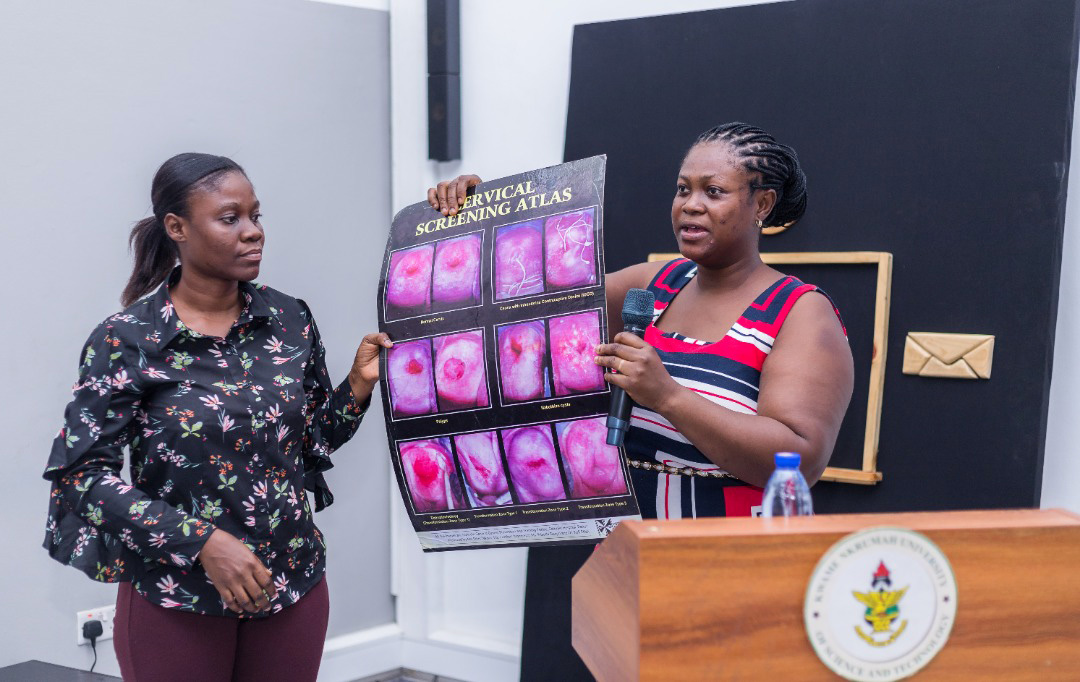
In his welcome address, Lawyer Owusu-Ansah Debrah, Institute Registrar on behalf of the Management of the Institute welcomed all participants and expressed appreciation for their participation in the programme. He added that such programmes help staff to stay healthy to be able to contribute their quota to the development of the Institute and University and so must be taken seriously.
The programme which was facilitated by Ms. Efua Asankoma Anderson (Senior Nursing Officer/Midwife) and Ms. Brandy Bonnah Swati (Nursing Officer) of the University Hospital afforded participants the opportunity to learn at first-hand, basic facts about breast and cervical cancer.
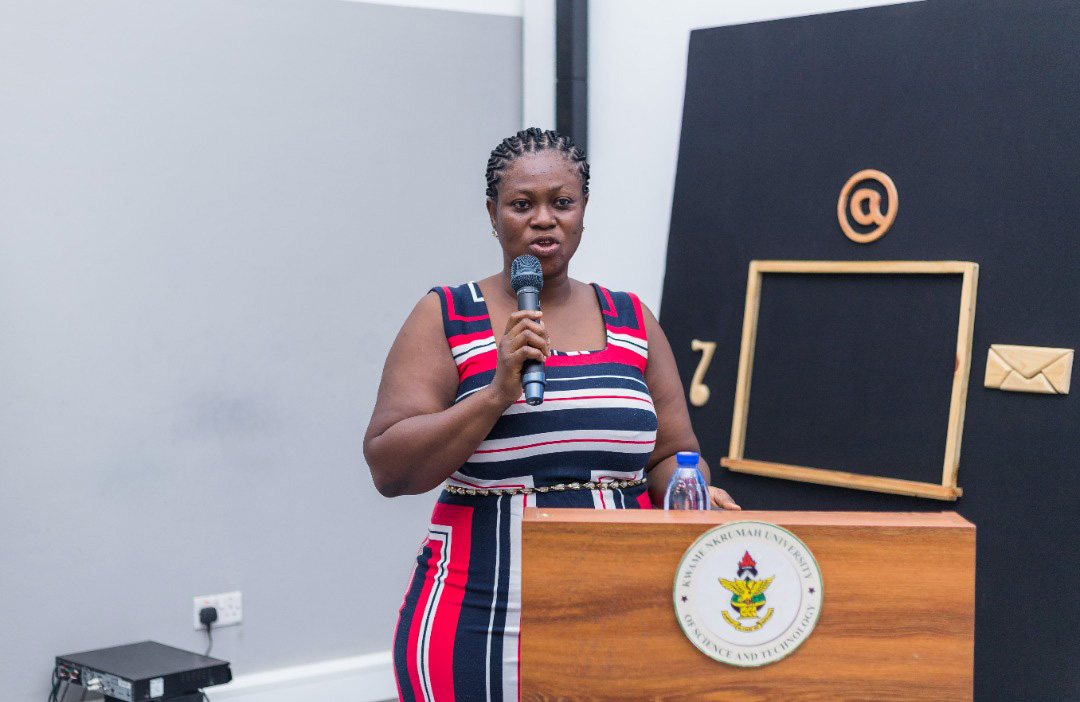
According to Ms. Anderson, cervical cancer is primarily caused by persistent infection with high-risk human papilloma virus (HPV) which is the most common viral infection of the reproductive tract (WHO, 2013). Participants were taken through the HPV, means of acquiring HPV, risk factors, genital warts and symptoms of cervical cancer. Other topics treated as part of the health education programme included prevention of cervical cancer, the various methods of screening for cervical cancer, vaccination and ended with general health tips.
On breast cancer, female participants were advised to screen their breasts at least once a month after their menstrual period and report any suspicions to the nearest health facility for further examination. Male participants were also admonished to be concerned about the health of their female colleagues, sisters, mothers, daughters and wives.
In his closing remarks, Mr. Abraham Adusei (Assistant Registrar) expressed appreciation to all participants and re-iterated the need to prioritise preventive health as opposed to curative health. It was his hope that other health topics such as prostrate disorders will be treated during subsequent health education programmes.

The programme was attended by 70 staff including Management members such as Prof. Anthony Andrews (Deputy Director), Lawyer Owusu-Ansah Debrah (Institute Registrar), Mr. Christopher Addo (Senior Assistant Registrar) and Mr. Abraham Adusei (Assistant Registrar).
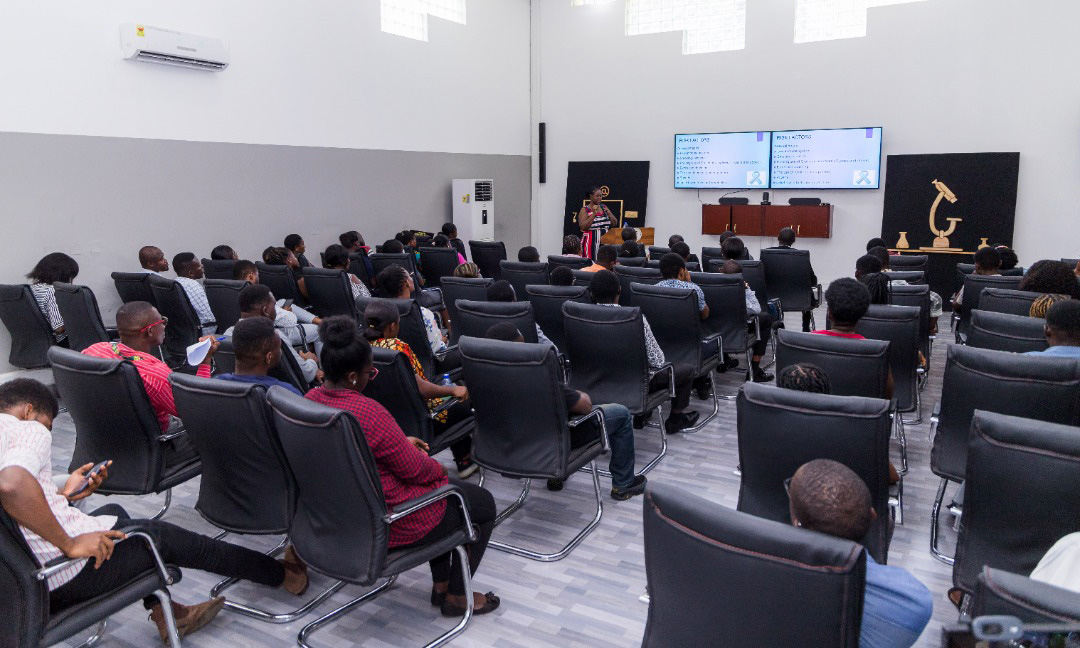
The programme ended with a questions and answers session where participants sought and received clarifications on various issues on the topics treated.


